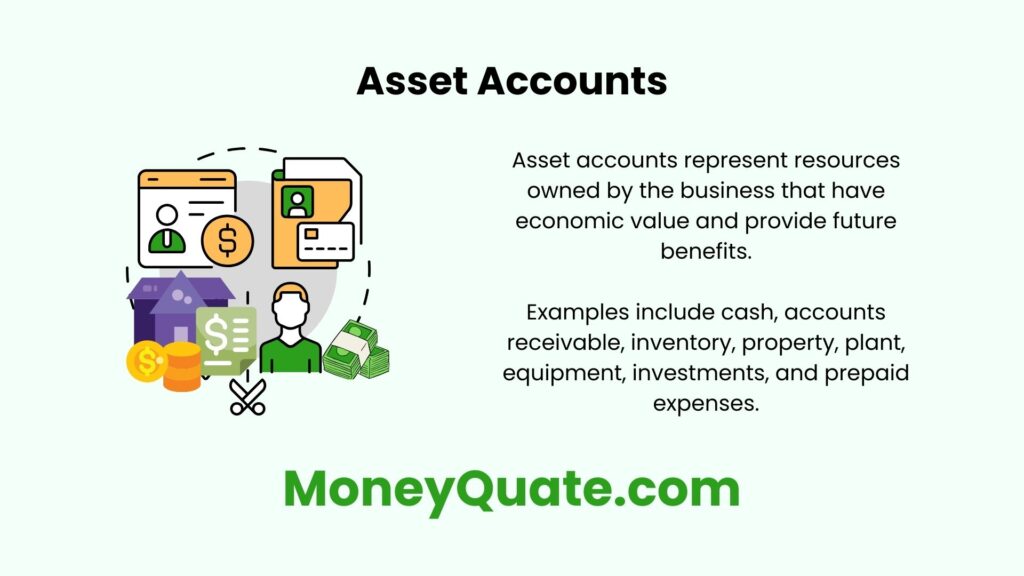Imagine your business is like a treasure chest filled with valuable things. These “treasures” could be cash, equipment, or even money owed by customers. Asset accounts help you keep track of all these valuable resources in your financial record-keeping system.
As accountants, we use asset accounts to identify and organize everything a business owns or controls that has future economic value.
Think of them as labeled compartments within your financial treasure chest, keeping everything neat and clear.
Contents
What Goes in an Asset Account?
Not everything your business owns qualifies as an asset. Here are some common types of assets that have their own dedicated accounts in the ledger:
- Current Assets: These are assets that can be easily converted into cash within a year. Imagine them as the readily available treasures in your chest.
- Examples: Cash, Accounts Receivable (money owed by customers), Inventory (products you sell).
- Non-Current Assets: These are assets that take longer than a year to convert into cash. Think of them as the more permanent treasures in your chest.
- Examples: Property (buildings or land), Equipment (computers, machines), Vehicles (delivery trucks).
- Intangible Assets: These assets don’t have a physical form, but still hold value for your business. Imagine them as invisible treasures, but valuable nonetheless!
- Examples: Brand Names, Patents (exclusive rights to an invention), Copyrights (ownership of creative work).

Keeping Track in the Ledger
Each asset account has a designated page in the ledger. Here’s a simplified breakdown of what you’ll find:
- Account Name: Clearly states what the asset is, like “Cash” or “Inventory.”
- Date: Records the date of any transaction related to the asset (purchase, sale, etc.).
- Debit: Shows any increases in the asset value (like buying new equipment).
- Credit: Shows any decreases in the asset value (like selling inventory).
- Balance: Represents the current value of the asset, calculated by subtracting credits from debits.
Why Asset Accounts Matter?
Asset accounts provide valuable insights for businesses in several ways:
- Financial Health: Understanding your asset value helps assess the overall financial health of your business.
- Decision Making: Knowing what assets you own helps you make informed decisions about investments or future purchases.
- Loan Applications: Asset accounts play a crucial role in securing loans, as lenders often consider a business’s assets when evaluating risk.
Real-Life Example of Asset Accounts
Let’s see an asset account in action:
Account Name: Inventory
| Date | Description | Debit | Credit | Balance |
|---|---|---|---|---|
| Oct 1 | Opening Inventory | $10,000 | – | $10,000 |
| Oct 10 | Purchased New Products | $5,000 | – | $15,000 |
| Oct 15 | Sold Products to Customers | – | $2,000 | $13,000 |
The Treasure Chest Takeaway
Asset accounts might seem like a simple recordkeeping tool, but they play a vital role in understanding a business’s financial well-being.
By organizing and tracking your valuable resources, you can make informed decisions, build financial strength, and ultimately unlock the full potential of your business treasure chest!
So next time you hear about asset accounts, remember – they’re not just about recording things, they’re about revealing the hidden treasures of your business!